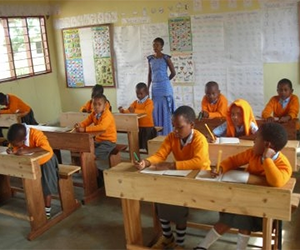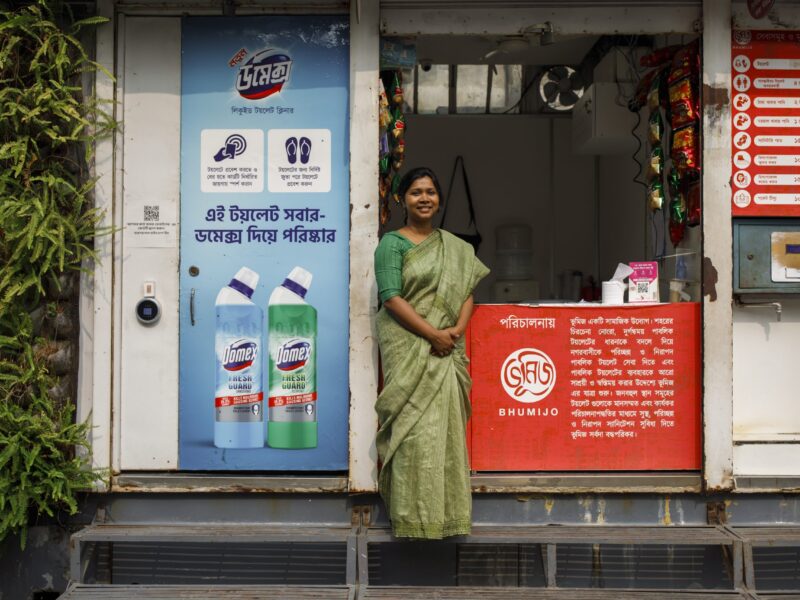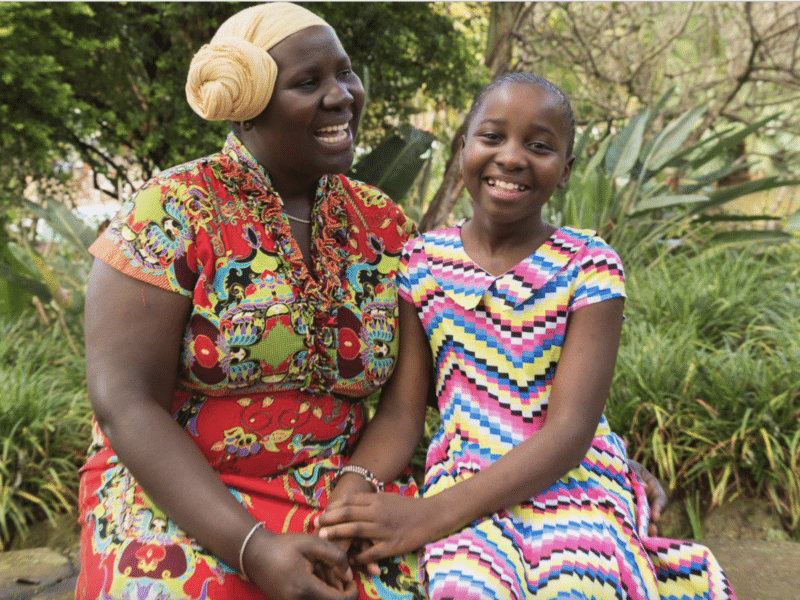Aluminum-sheet structures visible from the road to Kilosa, Tanzania, appear to be agricultural storage sheds, but at closer range, the smoke and cacophony of sounds from kids playing and crying tell a different story. This is a small community—one of four allocated for flood victims.
Last year, horrific floods devastated the Kilosa area, effects of which are still felt by the Kilosa people today. A majority remain homeless. Students and teachers from Madaraka and Kondoa primary schools whose buildings are affected by floods share buildings with Kilosa town and Mazinyungu primary schools.
Because most housing exists along swamps and a river, malaria poses a major health threat in this area. But together with different partners, the district leadership is working hard to control it. For example, in conjunction with the government’s Under 5 Catch Up and Universal Coverage campaigns, the Council Health Management Team (CHMT) and the District Malaria Advocacy Team (DMAT)—initiated by CCP’s VOICES Tanzania project—ensured that all housing in refugee camps were issued with mosquito nets and free malaria medication.
The Kilosa DMAT also implemented a malaria-free schools concept in 13 schools across the district. The schools project is part of the DMAT mission in Kilosa that aims to promote malaria messages on prevention and treatment in schools through teachers and students. The DMAT works in both primary and secondary schools, where students are encouraged to establish malaria clubs, which facilitate malaria activities.
“Our school is committed to this campaign,” said Mwalimu Edna Dungumalo, the school head teacher at Mazinyungu primary school in Kilosa. “And we are looking forward to doing more malaria activities with the students.”
The schools’ activities include morning talks to cover malaria topics, malaria debates, essay-writing competitions covering malaria topics, and a malaria-themed song, poem and drawing competition. Malaria-themed sports and games also contribute to promoting awareness. And each science teacher allocates time for discussing malaria with students.
“Malaria is a Preventable and Treatable Disease”
“Malaria ni Ugonjwa unaozuilika na kutibika.” (Translation: Malaria is a preventable and treatable disease). These words were spoken preceding the “good morning” greeting from the standard seven class at Mazinyungu primary school. Accompanied by the district school health coordinator and a CHMT member, VOICES Tanzania visited seven schools in Kilosa to observe different malaria activities carried out by the students.
With enthusiasm and confidence, students showed a great understanding about malaria. They talked about malaria mosquitoes, signs and symptoms, prevention and treatment, and the effects of malaria. To the surprise of the visitors, they answered all of the questions about the disease.
Before leaving, an eager student asked to show the visitors one more activity. In two even lines, a procession of boys and girls in white shirts and blue shorts and skirts danced in step formation, singing a malaria-themed song in Swahili. The song teaches students about malaria symptoms and the importance of getting to a hospital for tests and treatment, while insisting on finishing prescription doses.
From this school, the team arrived to Magomeni primary school where visitors were received with the school malaria motto “Kinga ni bora kuliko tiba, tuangamize mazalia ya mbu na tulale ndani ya vyandarua.” (Translation: Prevention is better than cure, destroy mosquito breeding sites and sleep under a mosquito net). Visitors heard students’ malaria-themed poems and viewed malaria-themed drawings.
“Malaria is a major health problem among students,” said the Magomeni head teacher, Mwalim Dikson Koko. “We will continue educating them to make sure they take the necessary steps to protect themselves from malaria.”
Learn more about the VOICES project.





